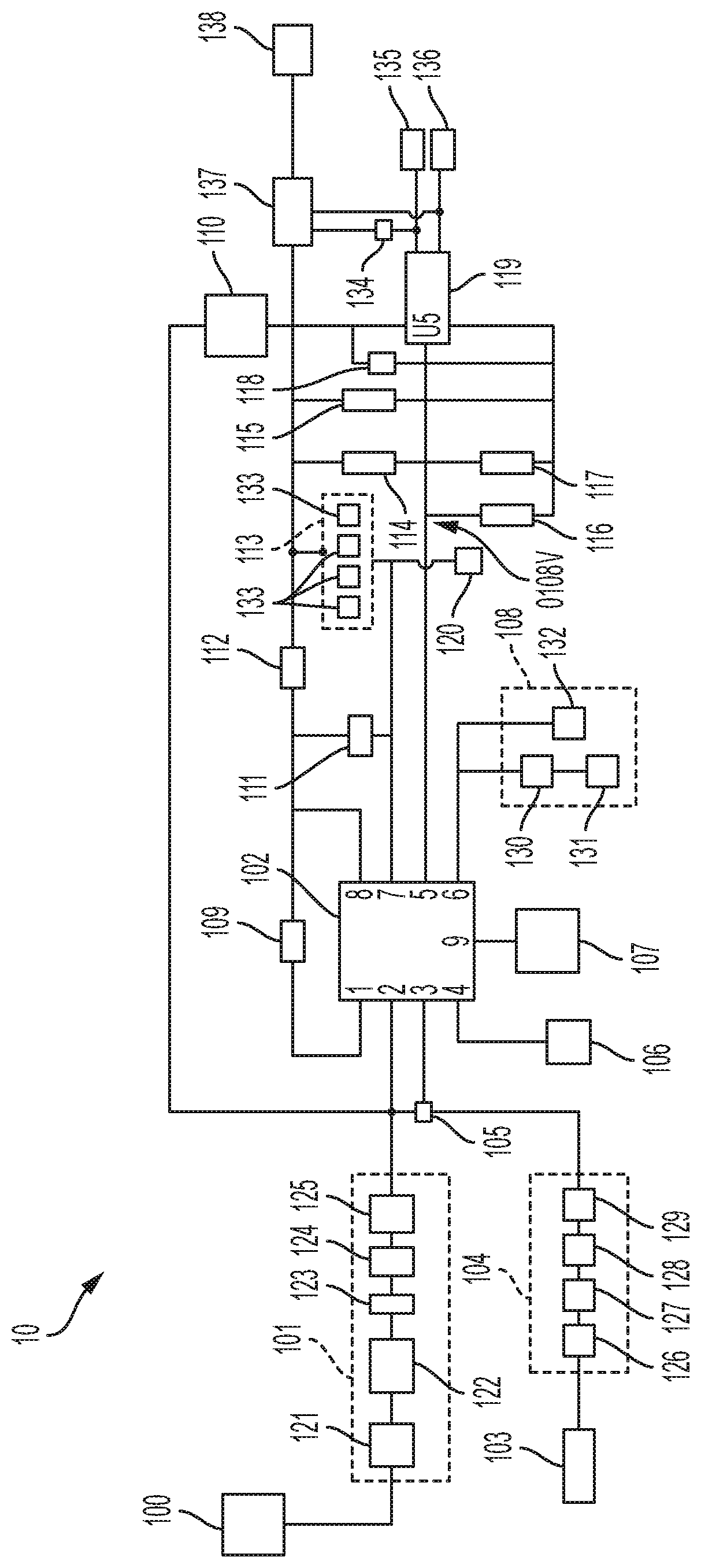Self-regulating current circuit apparatus and method
a current circuit and self-regulating technology, applied in the direction of electric variable regulation, process and machine control, instruments, etc., can solve the problems of deployment failure, release mechanism often adds significant development cost, and complexity and functionality in a small package, and achieves simple, reliable, and reliable
- Summary
- Abstract
- Description
- Claims
- Application Information
AI Technical Summary
Benefits of technology
Problems solved by technology
Method used
Image
Examples
Embodiment Construction
[0041]The present invention is directed to an apparatus and method of a Self-Regulating Current Circuit having a small, robust footprint that will integrate a constant current source need for simple, reliable, and inexpensive release devices in airborne and other environments, including satellite deployment devices and pyrotechnic applications.
[0042]In one embodiment, the apparatus of the present invention includes a Self-Regulating Current Circuit (SRC2), which is a current circuit which utilizes a Switching Regulator to provide high efficiency power conversion and a high-side current monitor, but instead of driving the feedback input with a voltage divider to set the output voltage, in one embodiment, the Self-Regulating Current Circuit (SRC2) utilizes a high-side current sense resistor with an Operational Amplifier optimized for current sensing, to drive the feedback input to the Switching Regulator, thereby creating a Self-Regulating constant current source. By adjusting the gai...
PUM
 Login to View More
Login to View More Abstract
Description
Claims
Application Information
 Login to View More
Login to View More - R&D
- Intellectual Property
- Life Sciences
- Materials
- Tech Scout
- Unparalleled Data Quality
- Higher Quality Content
- 60% Fewer Hallucinations
Browse by: Latest US Patents, China's latest patents, Technical Efficacy Thesaurus, Application Domain, Technology Topic, Popular Technical Reports.
© 2025 PatSnap. All rights reserved.Legal|Privacy policy|Modern Slavery Act Transparency Statement|Sitemap|About US| Contact US: help@patsnap.com

